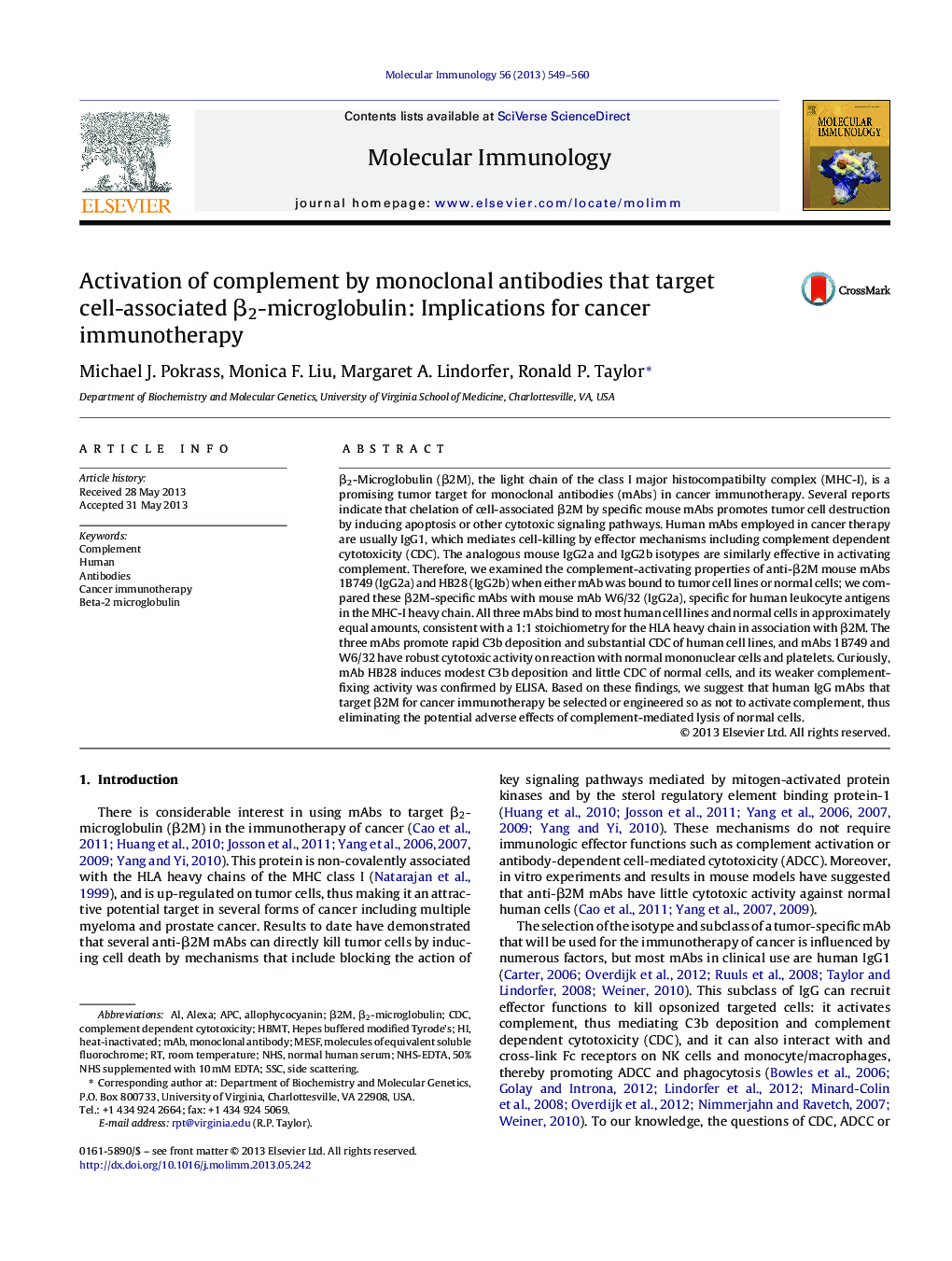| Article ID | Journal | Published Year | Pages | File Type |
|---|---|---|---|---|
| 5916956 | Molecular Immunology | 2013 | 12 Pages |
Abstract
β2-Microglobulin (β2M), the light chain of the class I major histocompatibilty complex (MHC-I), is a promising tumor target for monoclonal antibodies (mAbs) in cancer immunotherapy. Several reports indicate that chelation of cell-associated β2M by specific mouse mAbs promotes tumor cell destruction by inducing apoptosis or other cytotoxic signaling pathways. Human mAbs employed in cancer therapy are usually IgG1, which mediates cell-killing by effector mechanisms including complement dependent cytotoxicity (CDC). The analogous mouse IgG2a and IgG2b isotypes are similarly effective in activating complement. Therefore, we examined the complement-activating properties of anti-β2M mouse mAbs 1B749 (IgG2a) and HB28 (IgG2b) when either mAb was bound to tumor cell lines or normal cells; we compared these β2M-specific mAbs with mouse mAb W6/32 (IgG2a), specific for human leukocyte antigens in the MHC-I heavy chain. All three mAbs bind to most human cell lines and normal cells in approximately equal amounts, consistent with a 1:1 stoichiometry for the HLA heavy chain in association with β2M. The three mAbs promote rapid C3b deposition and substantial CDC of human cell lines, and mAbs 1B749 and W6/32 have robust cytotoxic activity on reaction with normal mononuclear cells and platelets. Curiously, mAb HB28 induces modest C3b deposition and little CDC of normal cells, and its weaker complement-fixing activity was confirmed by ELISA. Based on these findings, we suggest that human IgG mAbs that target β2M for cancer immunotherapy be selected or engineered so as not to activate complement, thus eliminating the potential adverse effects of complement-mediated lysis of normal cells.
Keywords
Related Topics
Life Sciences
Biochemistry, Genetics and Molecular Biology
Molecular Biology
Authors
Michael J. Pokrass, Monica F. Liu, Margaret A. Lindorfer, Ronald P. Taylor,
